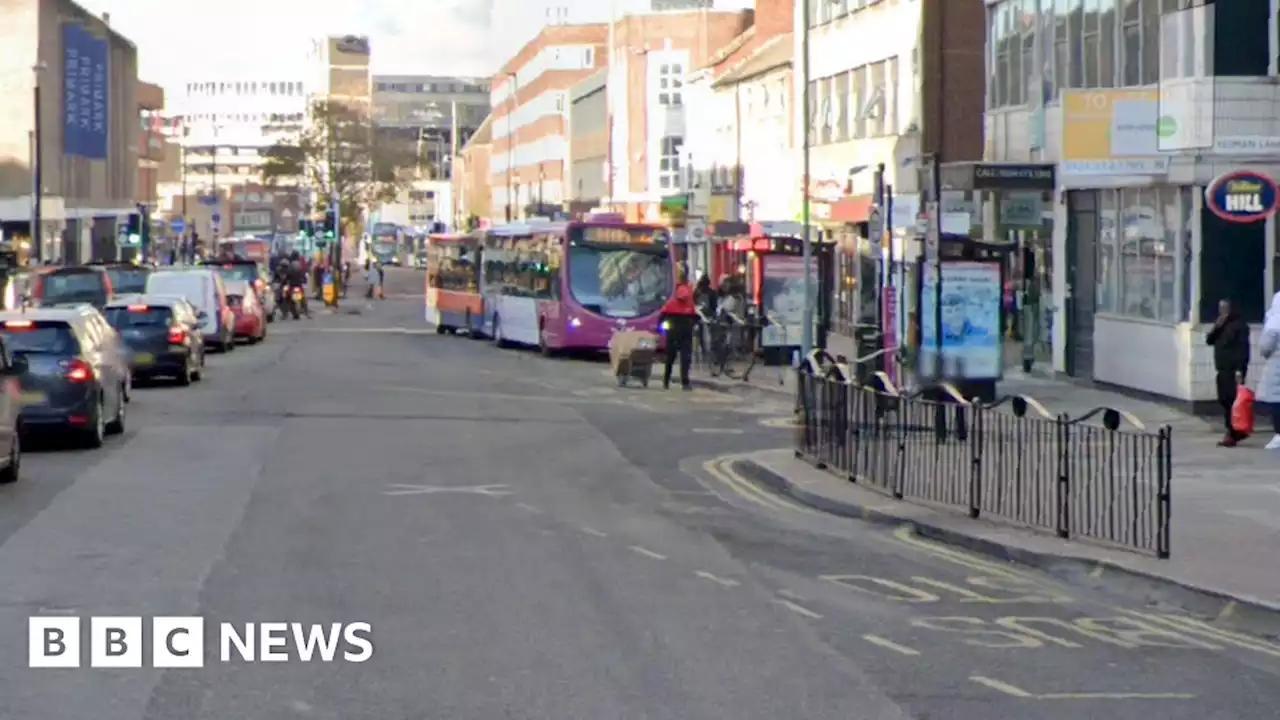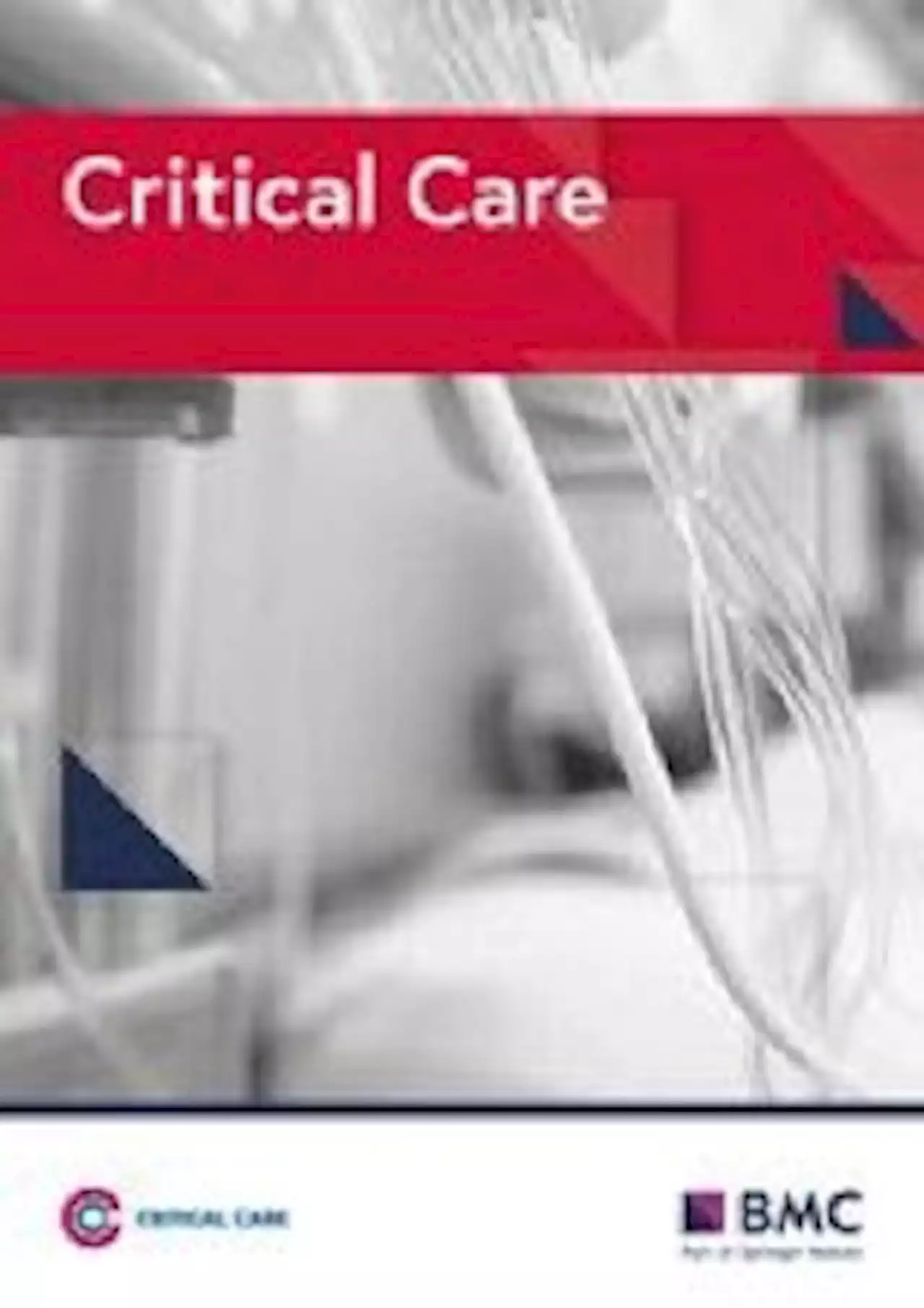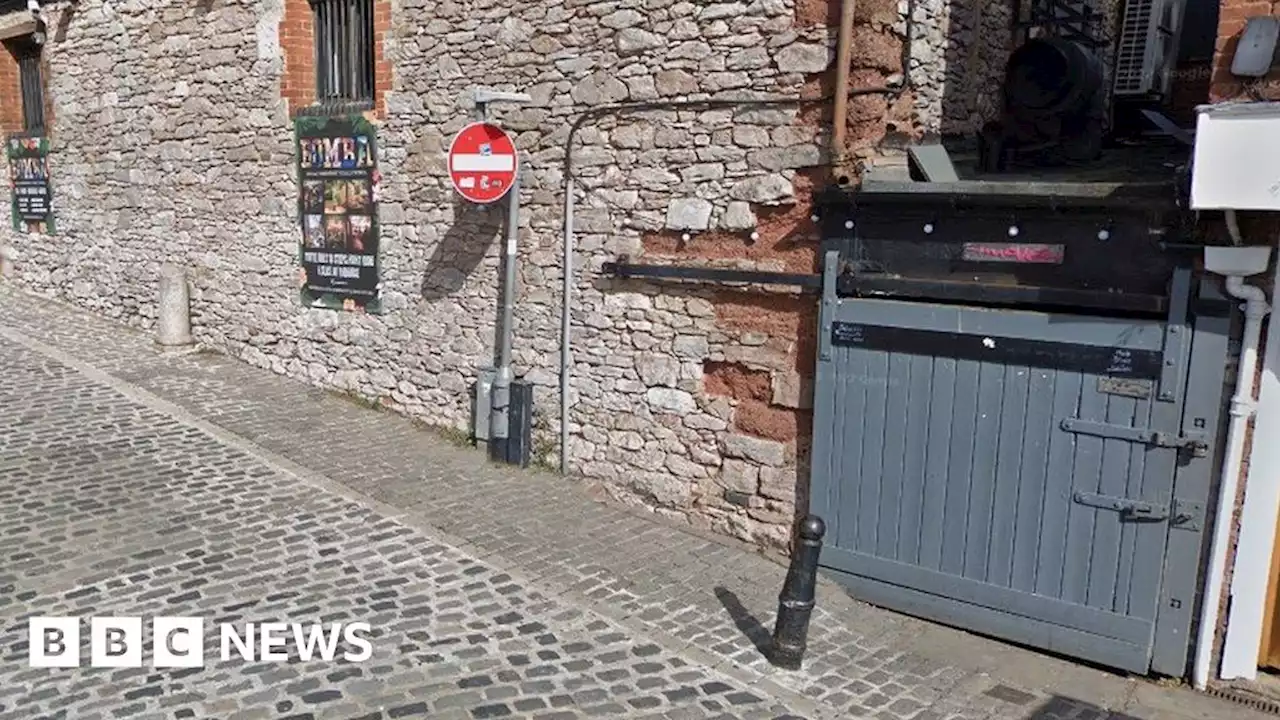Arrest as girl, 16, dies after taking tablet in nightclub
Devon and Cornwall Police said a number of teenagers were thought to have taken the tablets
Officers were called by paramedics to Move nightclub in Exeter at about 00:30 GMT on Saturday over concerns for the girl.The force said a number of teenagers were thought to have taken the tablets.Det Ch Insp Lee Nattrass said the force had identified several teenagers already who reported they had taken drugs.
United Kingdom Latest News, United Kingdom Headlines
Similar News:You can also read news stories similar to this one that we have collected from other news sources.
 Lurgan: Police investigating 1996 murder of Ian Lyons make arrestDetectives investigating the murder of Ian Lyons in Lurgan on New Year's Day 1996 have arrested a man
Lurgan: Police investigating 1996 murder of Ian Lyons make arrestDetectives investigating the murder of Ian Lyons in Lurgan on New Year's Day 1996 have arrested a man
Read more »
 The days of scruffy dressing as a power move in politics are overThere are many powerful – or formerly powerful – men who are so badly dressed that it feels intentional – and arrogant Scruffiness so extreme that it reads like a statement of superiority ✍️ Wendy Douglas
The days of scruffy dressing as a power move in politics are overThere are many powerful – or formerly powerful – men who are so badly dressed that it feels intentional – and arrogant Scruffiness so extreme that it reads like a statement of superiority ✍️ Wendy Douglas
Read more »
 Leicester: Arrest after man dies following head injuryPolice say the man, in his 40s, died in hospital on Thursday after sustaining a head injury.
Leicester: Arrest after man dies following head injuryPolice say the man, in his 40s, died in hospital on Thursday after sustaining a head injury.
Read more »
 Family spend 5 years stuck in mould-ridden temporary house after council ignored pleas to moveA family of three that has been trapped living in squalid conditions for five years has been moved to new accommodation after i contacted the council
Family spend 5 years stuck in mould-ridden temporary house after council ignored pleas to moveA family of three that has been trapped living in squalid conditions for five years has been moved to new accommodation after i contacted the council
Read more »
 Two new restaurants could move into empty unit near Glasgow CentralApplications have been submitted for two new restaurants in Glasgow city centre.
Two new restaurants could move into empty unit near Glasgow CentralApplications have been submitted for two new restaurants in Glasgow city centre.
Read more »
 Temperature control after cardiac arrest - Critical CareMost of the patients who die after cardiac arrest do so because of hypoxic-ischemic brain injury (HIBI). Experimental evidence shows that temperature control targeted at hypothermia mitigates HIBI. In 2002, one randomized trial and one quasi-randomized trial showed that temperature control targeted at 32–34 °C improved neurological outcome and mortality in patients who are comatose after cardiac arrest. However, following the publication of these trials, other studies have questioned the neuroprotective effects of hypothermia. In 2021, the largest study conducted so far on temperature control (the TTM-2 trial) including 1900 adults comatose after resuscitation showed no effect of temperature control targeted at 33 °C compared with normothermia or fever control. A systematic review of 32 trials published between 2001 and 2021 concluded that temperature control with a target of 32–34 °C compared with fever prevention did not result in an improvement in survival (RR 1.08; 95% CI 0.89–1.30) or favorable functional outcome (RR 1.21; 95% CI 0.91–1.61) at 90–180 days after resuscitation. There was substantial heterogeneity across the trials, and the certainty of the evidence was low. Based on these results, the International Liaison Committee on Resuscitation currently recommends monitoring core temperature and actively preventing fever (37.7 °C) for at least 72 h in patients who are comatose after resuscitation from cardiac arrest. Future studies are needed to identify potential patient subgroups who may benefit from temperature control aimed at hypothermia. There are no trials comparing normothermia or fever control with no temperature control after cardiac arrest.
Temperature control after cardiac arrest - Critical CareMost of the patients who die after cardiac arrest do so because of hypoxic-ischemic brain injury (HIBI). Experimental evidence shows that temperature control targeted at hypothermia mitigates HIBI. In 2002, one randomized trial and one quasi-randomized trial showed that temperature control targeted at 32–34 °C improved neurological outcome and mortality in patients who are comatose after cardiac arrest. However, following the publication of these trials, other studies have questioned the neuroprotective effects of hypothermia. In 2021, the largest study conducted so far on temperature control (the TTM-2 trial) including 1900 adults comatose after resuscitation showed no effect of temperature control targeted at 33 °C compared with normothermia or fever control. A systematic review of 32 trials published between 2001 and 2021 concluded that temperature control with a target of 32–34 °C compared with fever prevention did not result in an improvement in survival (RR 1.08; 95% CI 0.89–1.30) or favorable functional outcome (RR 1.21; 95% CI 0.91–1.61) at 90–180 days after resuscitation. There was substantial heterogeneity across the trials, and the certainty of the evidence was low. Based on these results, the International Liaison Committee on Resuscitation currently recommends monitoring core temperature and actively preventing fever (37.7 °C) for at least 72 h in patients who are comatose after resuscitation from cardiac arrest. Future studies are needed to identify potential patient subgroups who may benefit from temperature control aimed at hypothermia. There are no trials comparing normothermia or fever control with no temperature control after cardiac arrest.
Read more »
